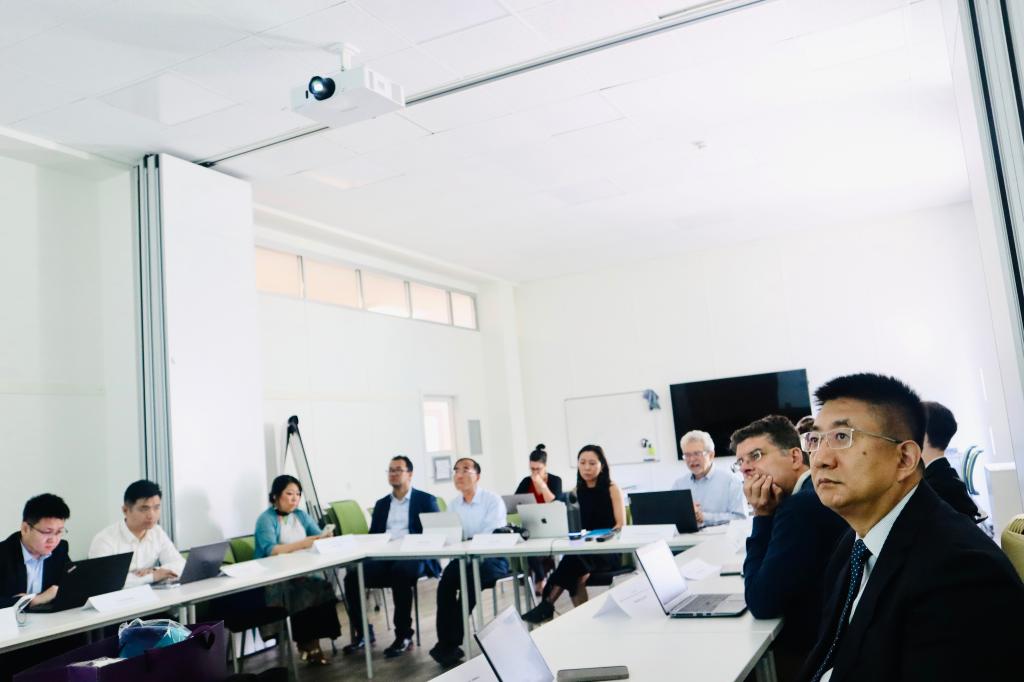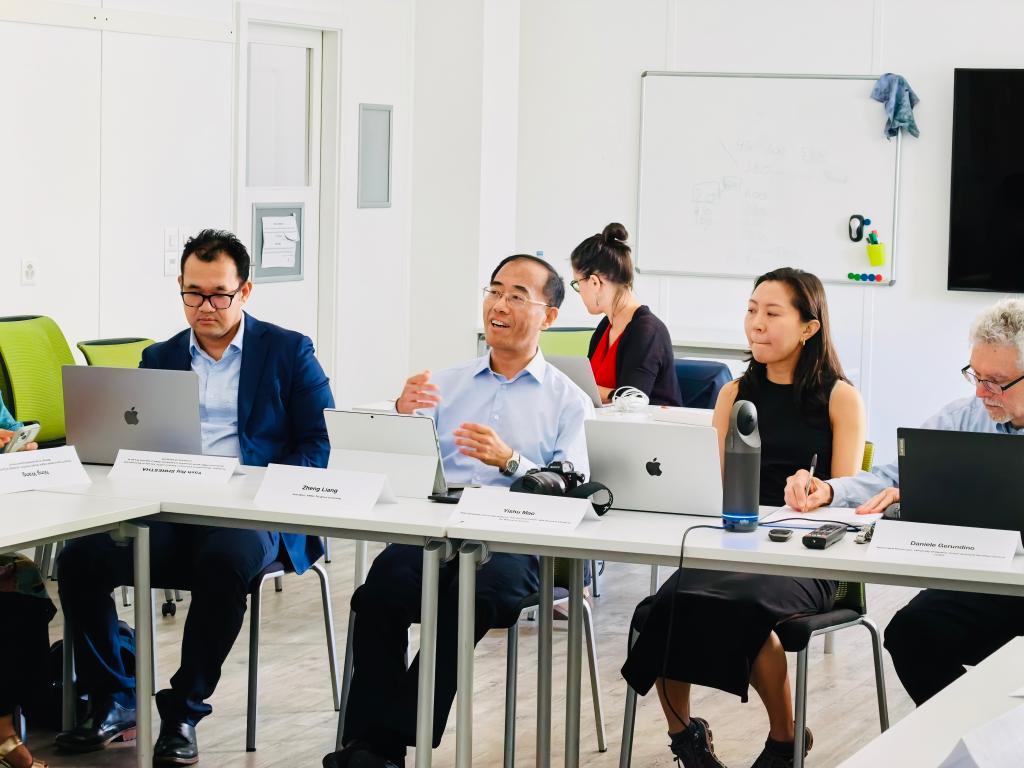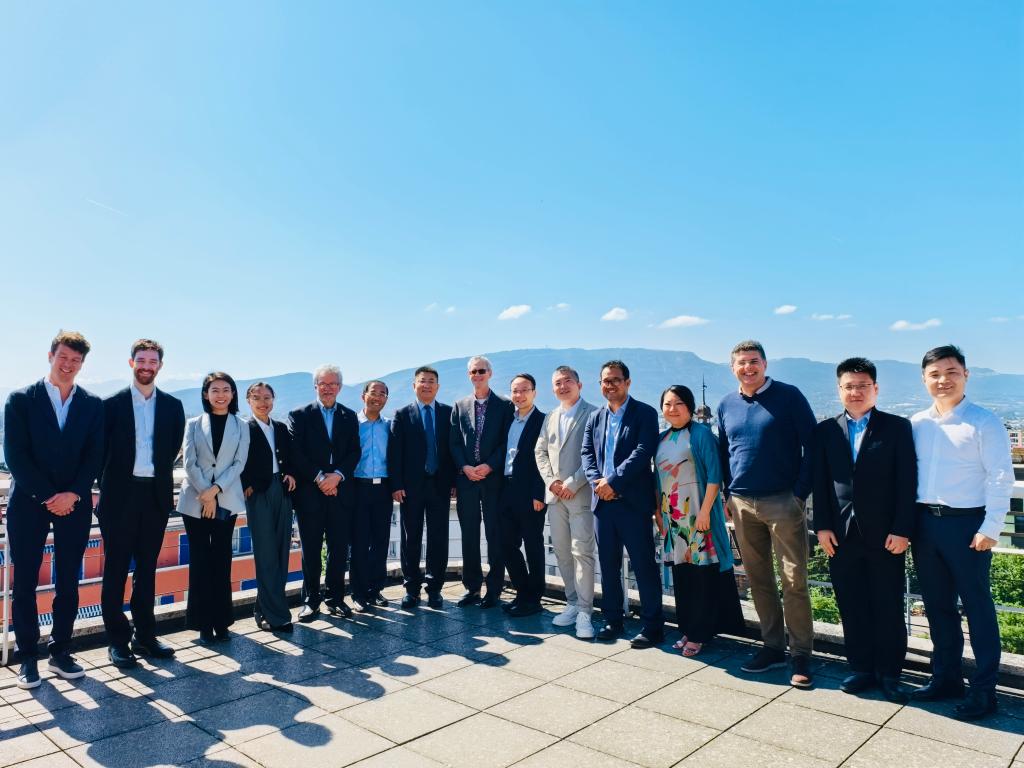On July 10, 2025, the closed-door workshop titled “Addressing the Challenges of Advanced AI Systems” was held at Campus Biotech in Geneva. The event was co-hosted by the University of Geneva, the University of Zurich (UZH), MPAI (Moving Picture, Audio and Data Coding by Artificial Intelligence), and Tsinghua University’s Institute for AI International Governance (I-AIIG).

The workshop brought together over twenty leading scholars and experts from China, Switzerland, Italy, France, Germany, Canada, and other regions. Participating institutions included: Tsinghua University, the China Academy of Information and Communications Technology (CAICT), the European Organization for Nuclear Research (CERN), ETH Zurich, Swiss Federal Technology Institute of Lausanne (EPFL), UZH, the University of Lausanne (UNIL), the Centre for Future Generations (Brussels), the Max Planck Institute for Human Development, and relevant UN-affiliated research institutions. The program featured keynote remarks and two rounds of structured dialogue, held in a hybrid format. Key themes included global AI safety risks, standardization mechanisms, governance structures, and opportunities for international collaboration.
Daniele Gerundino, associated researcher at the University of Geneva and former Assistant Secretary-General of the International Organization for Standardization (ISO), remarked: “AI technologies are evolving at an exponential pace and bringing profound changes to every aspect of society. While this presents enormous potential, it also introduces serious risks, particularly existential risks that demand urgent international attention. Although global efforts have taken shape in recent years, such as the Singapore Consensus on Global AI Safety Research Priorities and the International Scientific Report on the Safety of Advanced AI, a significant imbalance remains between the progress in AI performance and the global investment in safety frameworks. Regulatory systems and international standardization remain fragmented, especially in the face of fast-expanding generative AI and open-source models.”
Participants explored the feasibility of launching a new international collaboration mechanism for AI safety, one led by research institutions and deeply integrated into the AI research and development (R&D) lifecycle. Experts stressed that any future governance model must be science-based, inclusive, and anticipatory. It should also enable more effective alignment between research, standards development, and regulation. The importance of strengthening public-private partnerships was also emphasized to support the responsible and ethical development of AI technologies.
Several scholars presented comparative insights into AI governance in China and Europe, discussing the technical challenges of open-source models. They also reflected on the standardization of ethics, terminology harmonization, and the future of multilateral cooperation. Case examples and suggestions were shared from institutional experiences at CERN, ISO, Organisation for Economic Co-operation and Development (OECD), and various UN bodies. A consensus emerged around the need for practical global tools—such as standardized assessment systems and joint AI safety testing platforms—to improve transparency and trust in AI development and deployment.
The workshop organizers plan to produce a summary document of key findings and proposals to inform future international dialogue and cooperation. Tsinghua University’s I-AIIG, as co-host, held additional exchanges with multiple European institutions during the event and reaffirmed its commitment to strengthening global cooperation in AI governance.

This closed-door workshop provided a high-level platform for dialogue between academia, industry, and policy. It added valuable momentum toward building a science-based, collaborative, and globally trusted ecosystem for AI governance.
